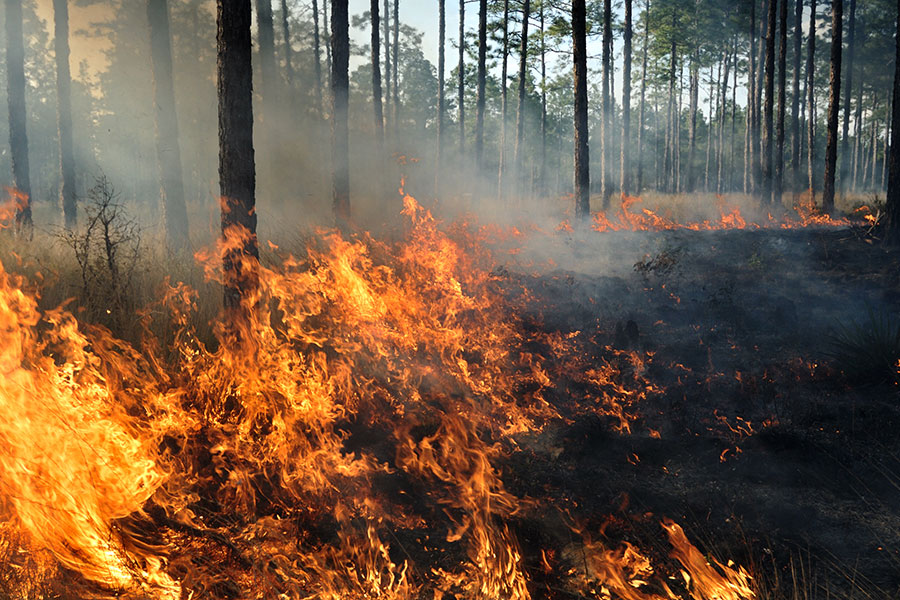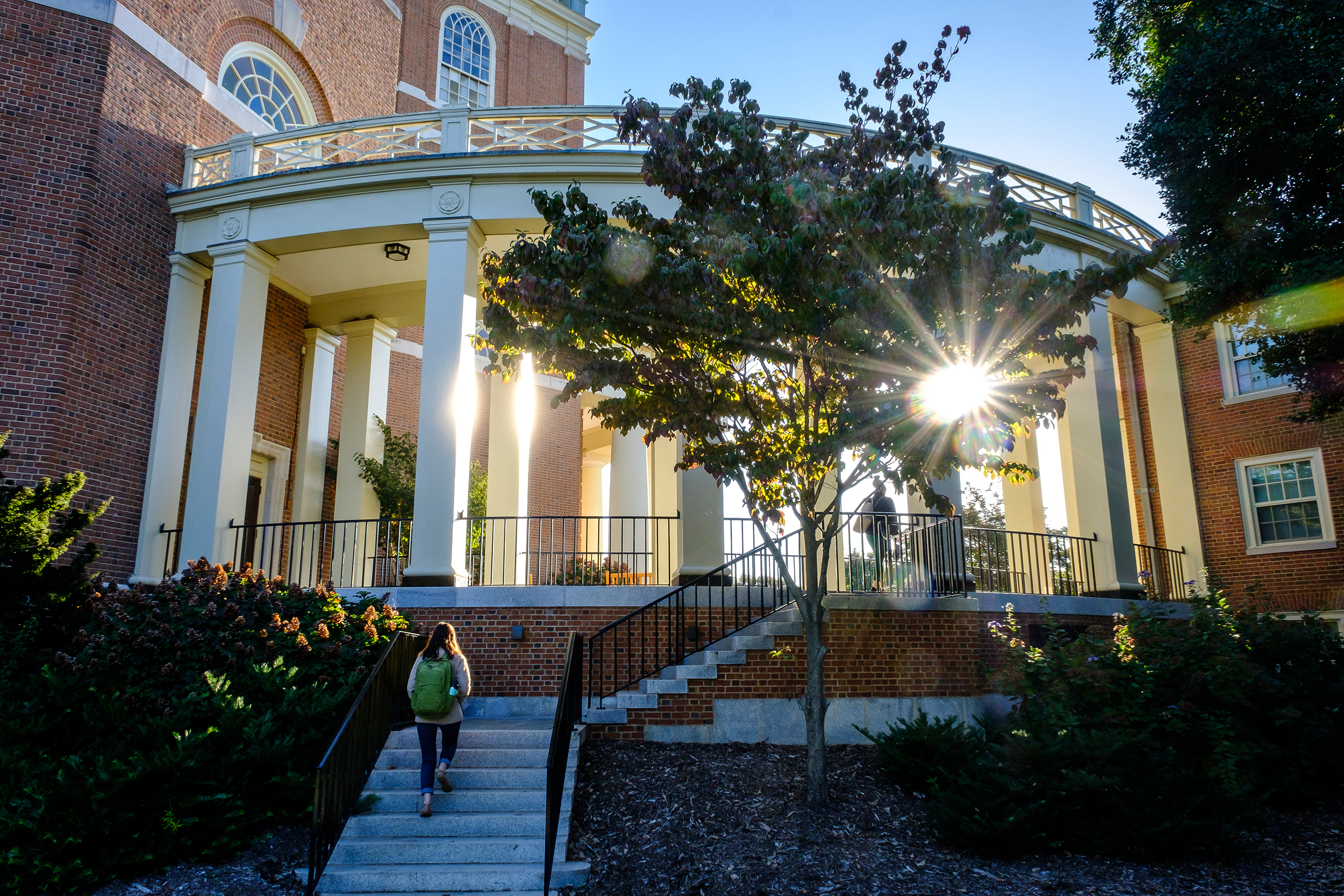Wake Forest receives national funding to advance public health
A $200,000 grant will support Public Health AmeriCorps for a third year
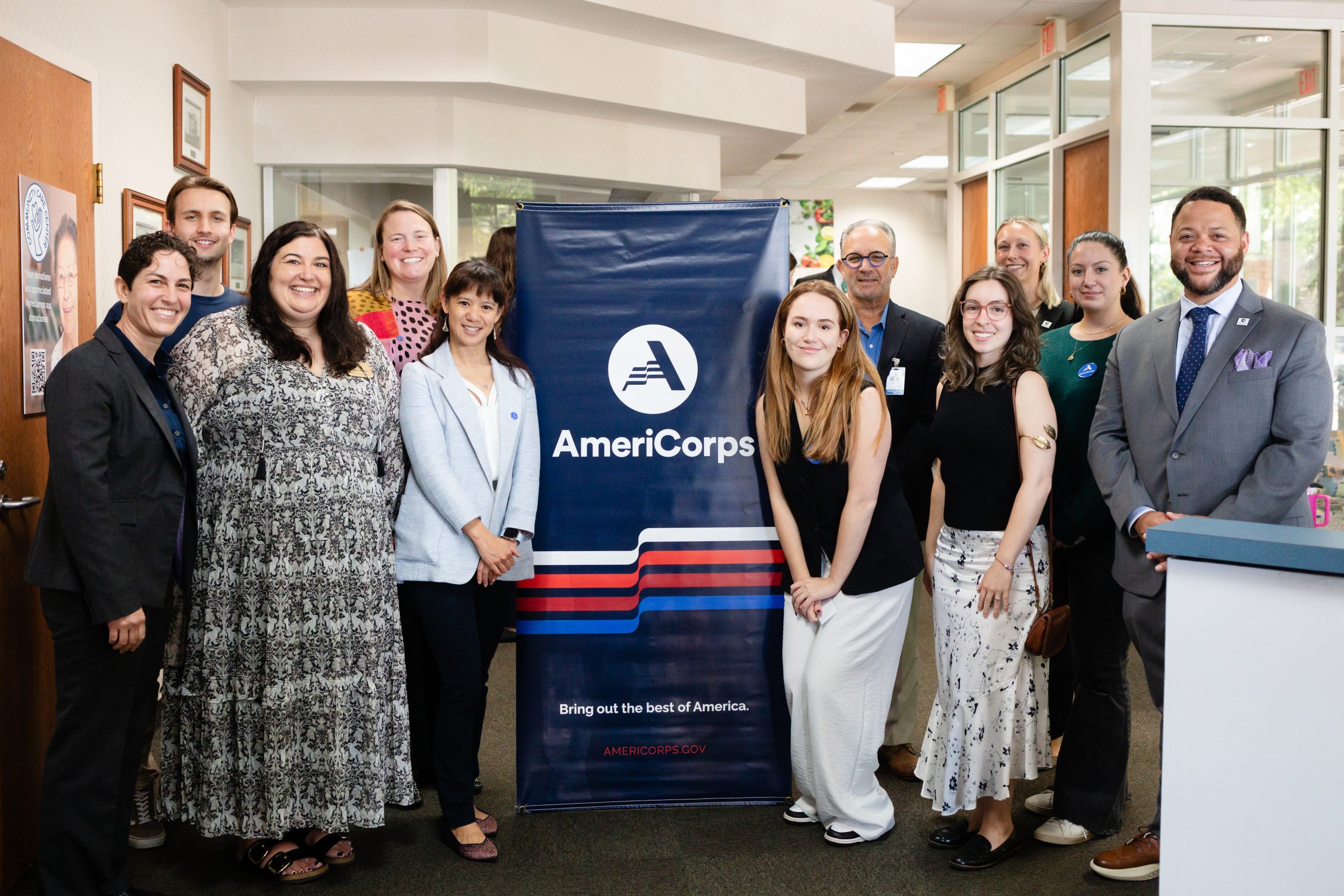
HIGHLIGHTS
- Wake Forest Public Health AmeriCorps recognized by national agencies for its Public Health AmeriCorps program.
- The initiative aims to address urgent public health needs, workforce shortages and increase health equity.
- WFU students serve at local nonprofits that support underserved populations.
Senior leaders from AmeriCorps and the Centers for Disease Control and Prevention visited Winston-Salem this week to see first-hand the impact Wake Forest’s Public Health AmeriCorps program is having in the community. The federal agencies awarded the University more than $200,000 to continue the program for a third year.
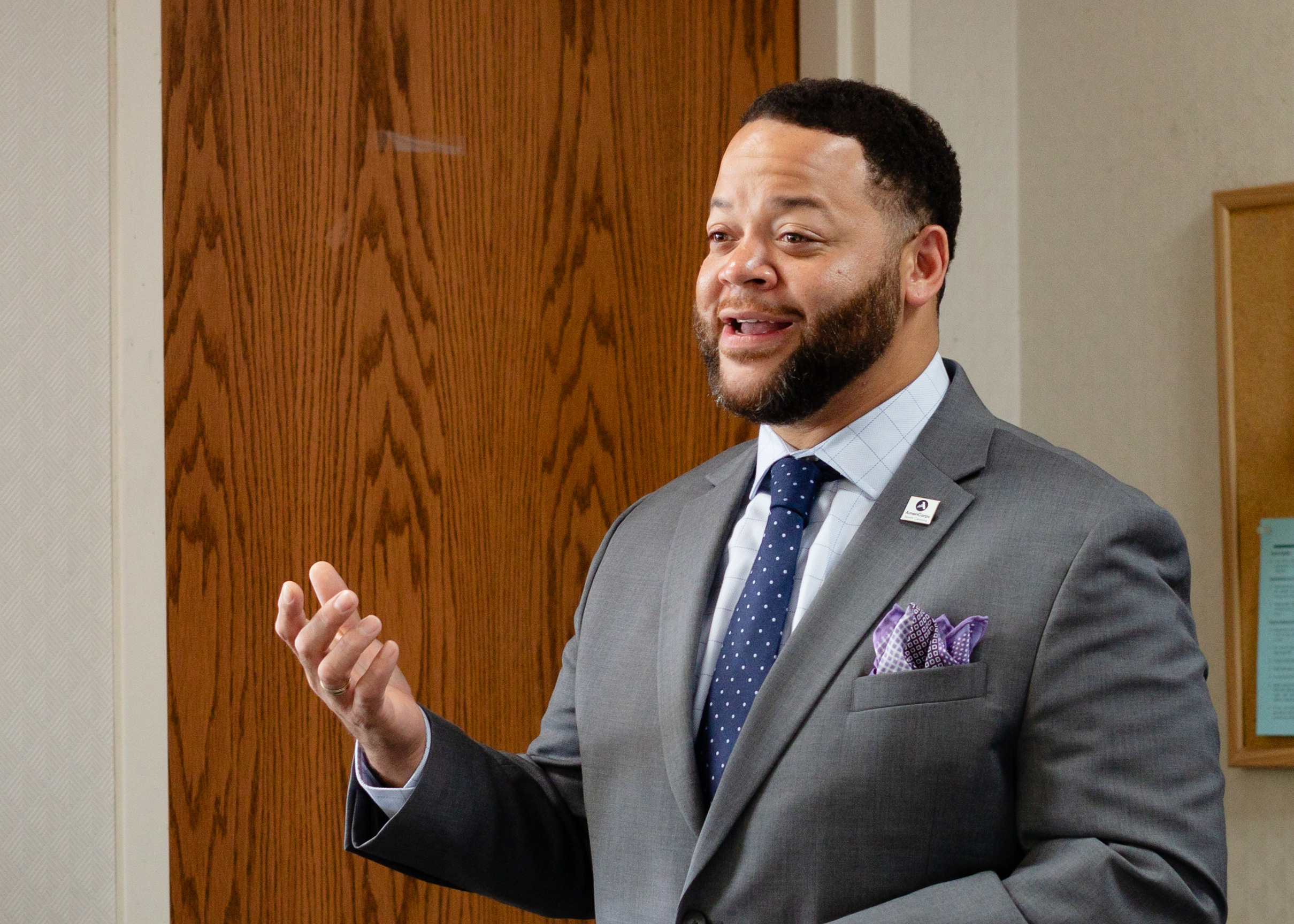
“Hearing about the personal connection that these members have with the people who are coming to these nonprofit clinics makes all of the difference,” said AmeriCorps CEO Michael Smith during an Oct. 8 site visit to the Community Care Center, one of the largest free health clinics in the Southeast, serving low income, uninsured residents in Forsyth, Davie and Stokes Counties.
Wake Forest senior and Public Health AmeriCorps member Chris Dietrich led a tour of the clinic, pointing out the lab where he worked many of the 900 hours he has spent supporting public health efforts through the program.
“I was able to assist the health clinic, helping process tests and taking glucose readings,” Dietrich said. “I thought it would be great to learn more about a career in the medical field, and it was, but more than anything, I learned how big the public health needs are in the community.”
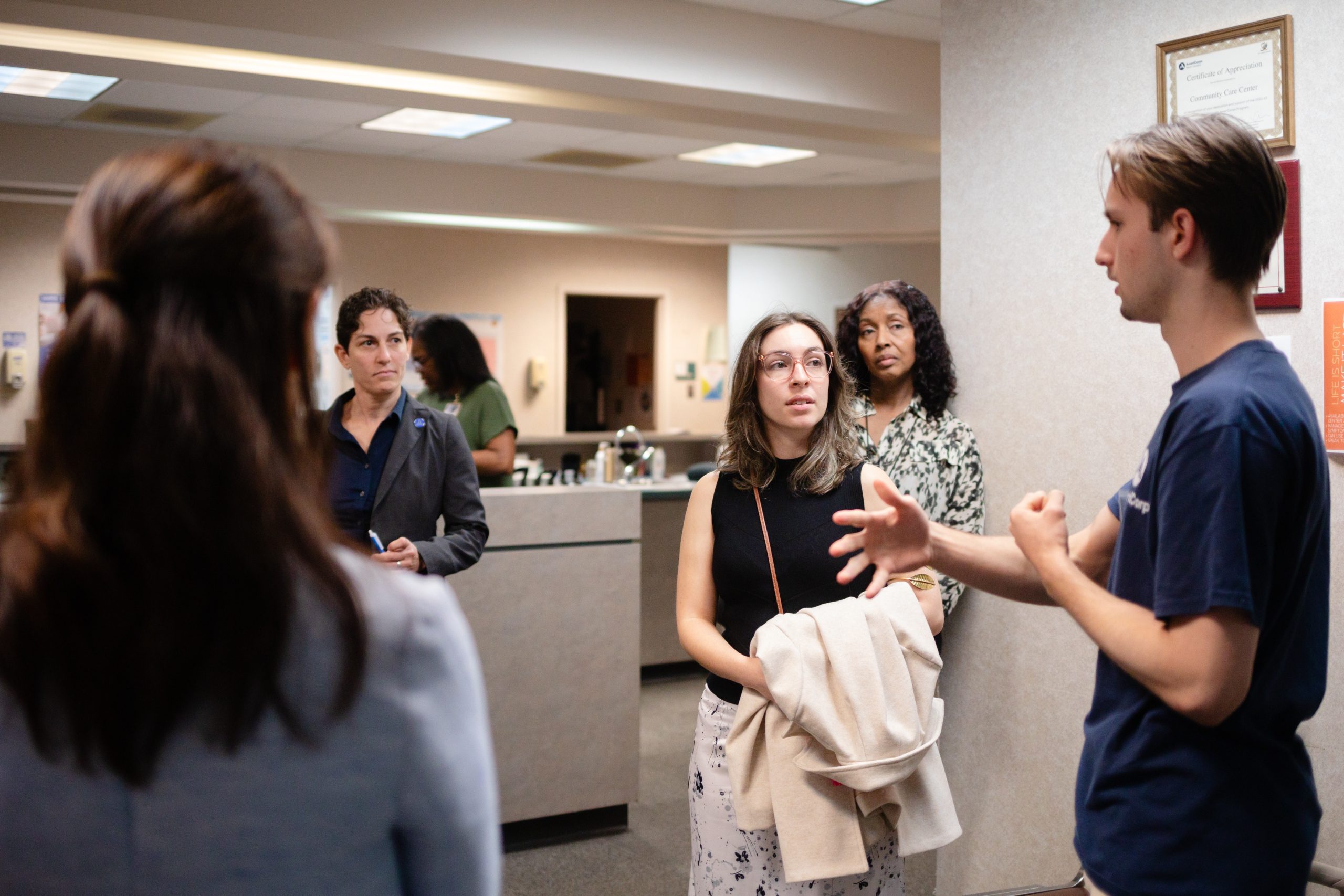
Public Health AmeriCorps aims to address urgent public health needs in communities and train the next generation of public health leaders. More than 40 members have served in the Wake Forest program since it began in 2021.
This year, 15 members are serving at seven host sites in Forsyth County, including the Community Care Center.
Volunteering for stronger communities
“We have over 2,000 patients that call the Community Care Center their primary care provider, their medical home,” said Paul Jeffrey, executive director and CEO of Community Care Center. “We are a volunteer-driven organization and without them, we can’t provide care.”
From helping with temperature screenings and providing patient triage to assisting with grant writing and filling in when a staff shortage arises, these members tackle a variety of critical public health needs at various sites.
“Because Wake Forest Public Health AmeriCorps members are here all year around with the large hour time commitment, that helps us a lot with continuity and different tasks with our volunteers,” said Elizabeth Mitchell, director of volunteers and grants management with the Center. “They can start and complete a project and see it happen from beginning to end. We can really trust them with larger projects that even help shape how the clinic operates.”
Rafaela Capelate De Oliveira began volunteering at the Center as an undergraduate at Wake Forest and joined Public Health AmeriCorps after graduation in May. She says she relates to patients’ struggles because of her own experience. Her family migrated to the U.S. from Brazil when she was younger and said she didn’t have health insurance. More than 70 percent of the patients are Spanish speaking. De Oliveira provides translation services for these individuals and doctors who are treating them.
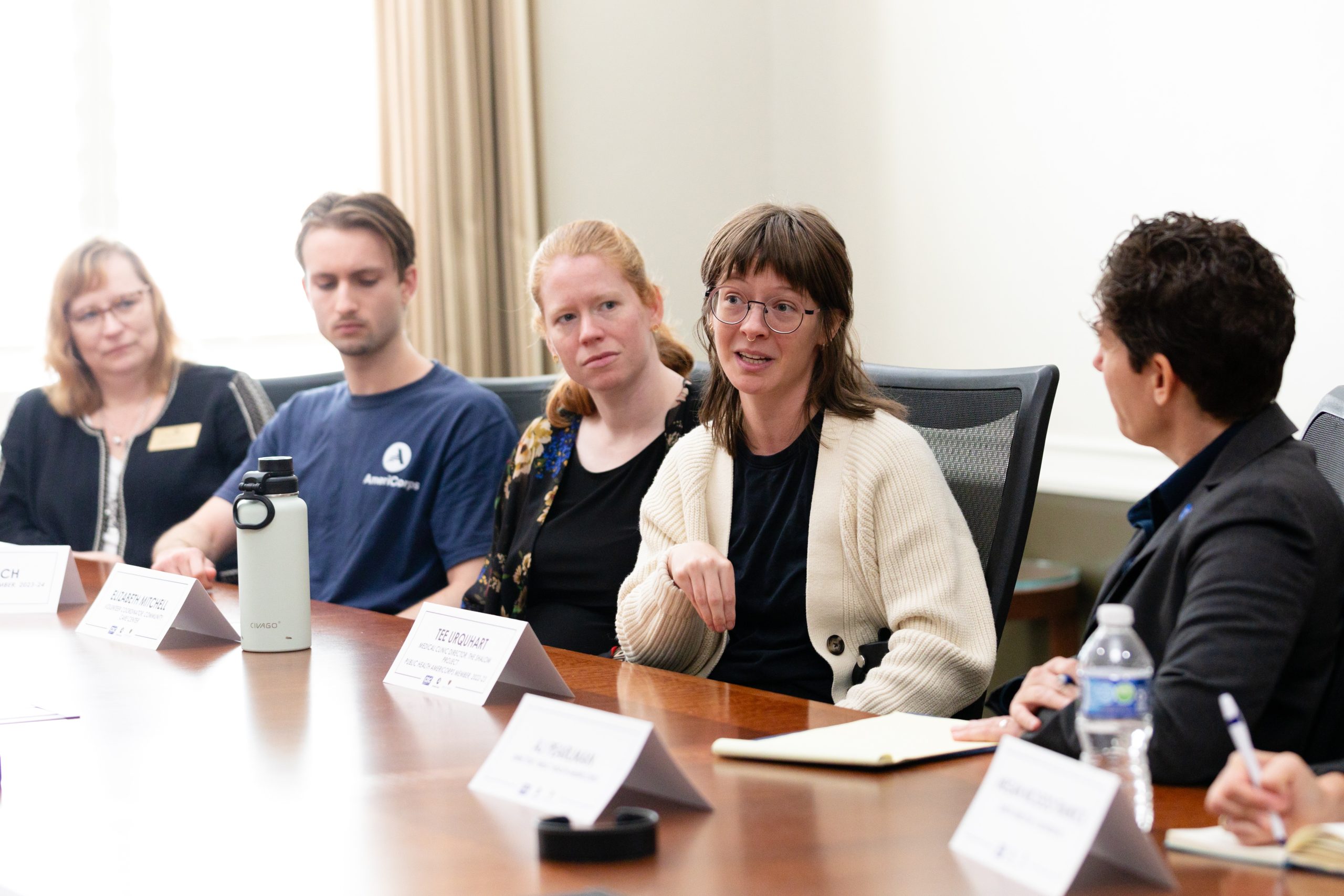
“My favorite part about this program is interacting with patients,” she said. “This experience gives us an opportunity to connect with the Winston-Salem community beyond the Wake Forest campus. We have places in this city with food deserts and you see their struggles. It’s important to meet people where they are. It’s taught me to be a better listener and given me a boost of confidence and the leadership skills to pursue a future career in health care.”
A deeper discussion
AmeriCorps and CDC officials also sat down with members at the Wake Forest campus during a roundtable discussion with members and representatives of the other host sites they support.
“I am incredibly inspired by the future of public health leaders that we have in this room,” said AJ Pearlman, Public Health AmeriCorps director.
Many of the members shared how these experiences are influencing their future career choices.
Reagan Smith, a junior at Wake Forest, completed her 900 hours last year while serving at Cancer Services in Winston-Salem. Her grandparents’ battle with cancer inspired her to get involved at the site. She’s currently a student director for the WFU Public Health AmeriCorps program. She shared a story with the discussion group about how an encounter with a patient that seemed non-health related, transformed her perspective about health care.
‘We had a patient who faced literacy skill challenges and asked for help filling out a job application and some other forms. Those little extra support steps immediately lifted his mood and spirits,’ she said.
This program showed me there’s more than the clinical side in health care.
Reagan Smith, a Wake Forest junior
“I want to be a surgeon and entering into the field as this person who has this unique background with these unique holistic experiences will hopefully make me more prepared to treat people beyond the disease.”
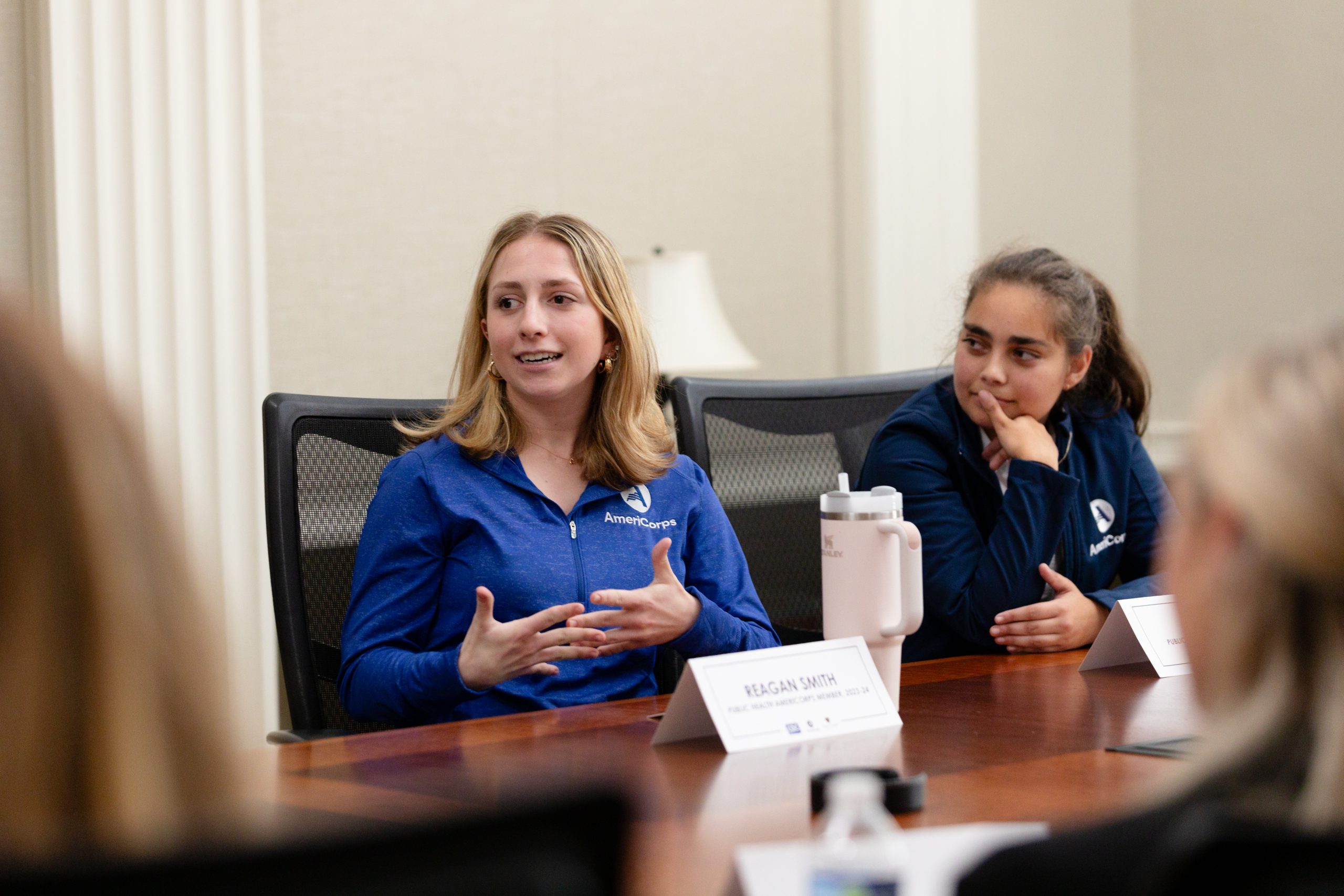
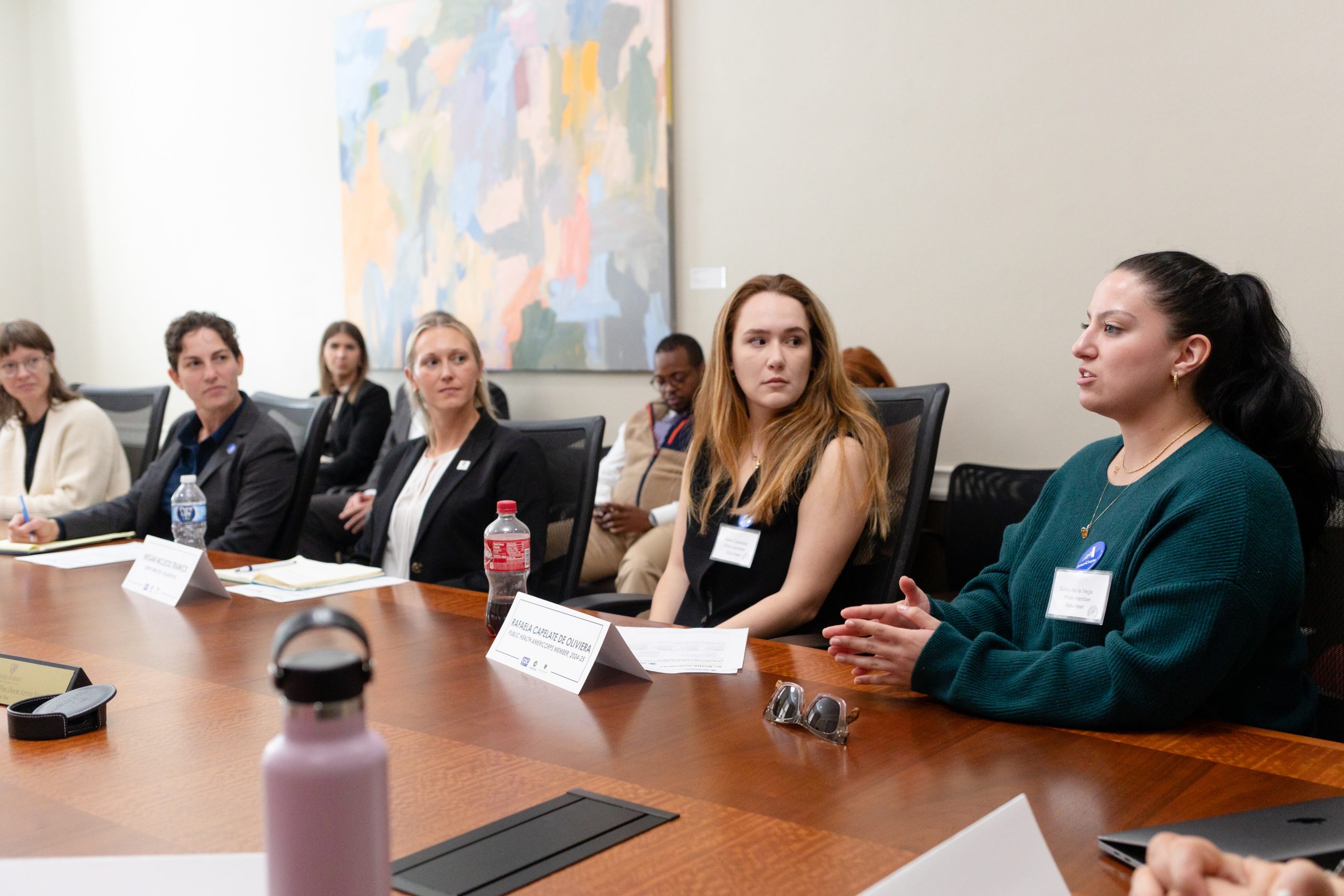
Beyond partnerships
Public Health AmeriCorps grew out of the immediate response to the pandemic. At that time, federal officials estimated the field needed 80,000 more public health workers to meet the country’s needs. The historic initiative between AmeriCorps and the Centers for Disease Control and Prevention was launched with American Rescue Act dollars.
Wake Forest University was selected to be part of the first wave of nationwide grantees. It’s one of two North Carolina-based higher education institutions in the inaugural cohort.
“I’m thrilled to hear and learn more about the impact that Public Health AmeriCorps members are having in this community,” said Dr. Charlene Wong, a pediatrician and senior advisor for health strategy in the Office of the Director at the Centers For Disease Control. “It’s important to think beyond the clinic walls and these volunteers are addressing the critical need for health care access. When you see connections for example with food insecurity and chronic health issues or maternal health, and act, it makes a stronger community.”
In North Carolina, VolunteerNC distributes the funding and provides oversight, support, and training to the AmeriCorps members and program staff.
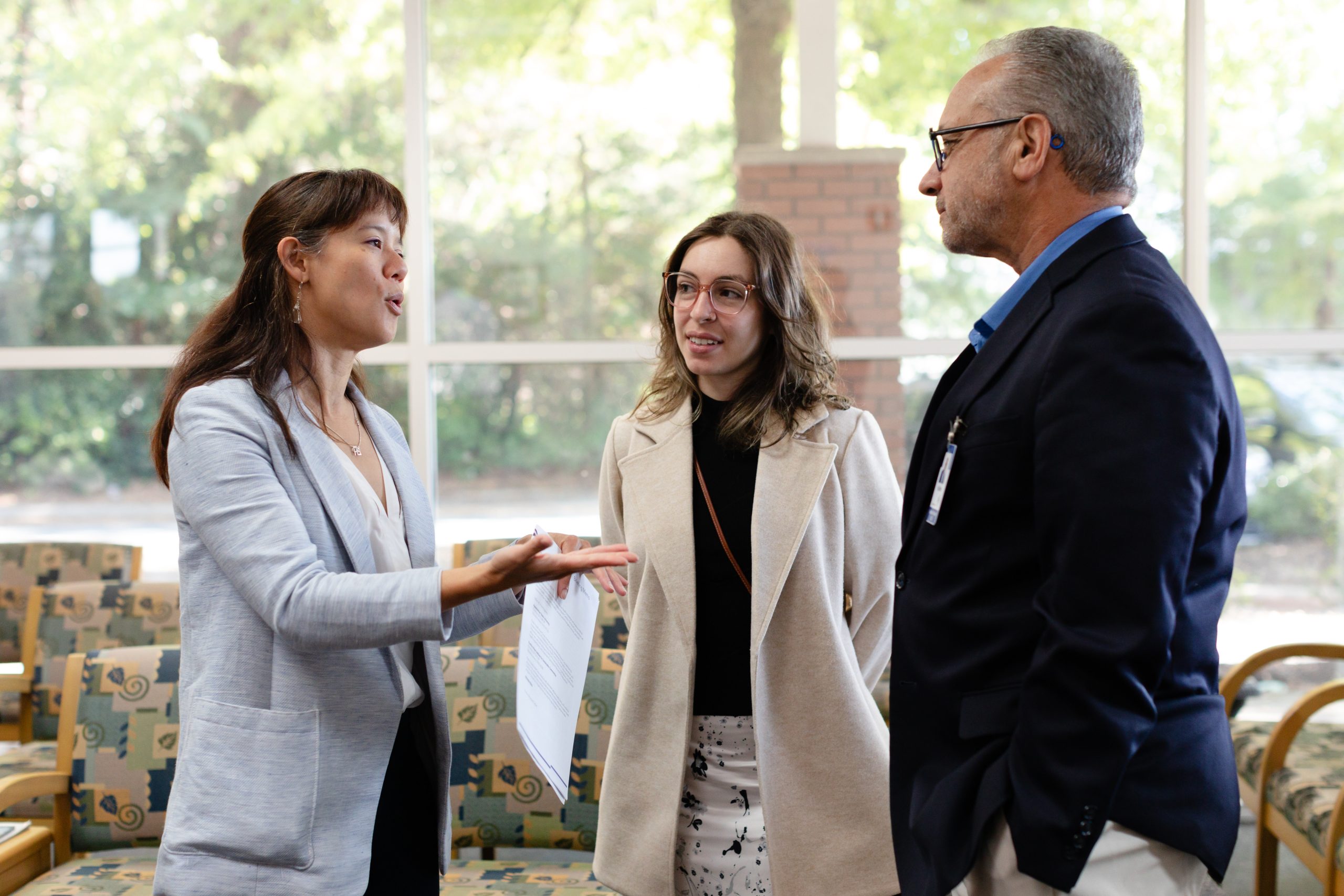
“We have seen so much interest from our students and so many great relationships built with our community partners and this allows the third full year of the grant to really meet the longer-term goals that we have for the program around community impact, said Brad Shugoll, director of service and leadership in Wake Forest’s Office of Community and Civic Engagement.
Assistant Vice President of Campus Life Marianne Magjuka, who oversaw the launch of Wake Forest’s program, looks forward to what is ahead. “At Wake Forest, our members are serving underinsured populations and addressing health disparities in Winston-Salem. Public Health AmeriCorps is catalyzing a new generation of leaders who will be prepared to join the public health field and continue to make an impact in their communities for years to come.
Back at the Community Care Center, Dietrich is helping get the lab ready to welcome the next day’s patients.
Service is ongoing. It never stops. That’s the Pro Humanitate motto.
Chris Dietrich, Wake Forest senior and Public Health AmeriCorps member
“You don’t just do something and leave it there. Although I don’t have the time to dedicate the 900 hours again this year, I still wanted to come back for four hours a week to continue volunteering. It has opened a new perspective on public health. It’s at your doorstep. It’s everywhere and impacts the entire community.”
Since the national launch of Public Health AmeriCorps in 2021, more than 5,000 AmeriCorps members have provided support to community-based organizations and schools across the country.
In North Carolina, AmeriCorps members are also providing assistance with Hurricane Helene recovery efforts. So far, nearly 90 members have been deployed to hard hit areas including Asheville and other Western North Carolina communities. Overall, more than 220 members have been deployed across all states affected by the deadly storm.
More details about Public Health AmeriCorps can be found here.
Categories: Community Impact, Experiential Learning, Personal & Career Development, Pro Humanitate
Media Contact
Keri Brown
media@wfu.edu
336.758.5237

